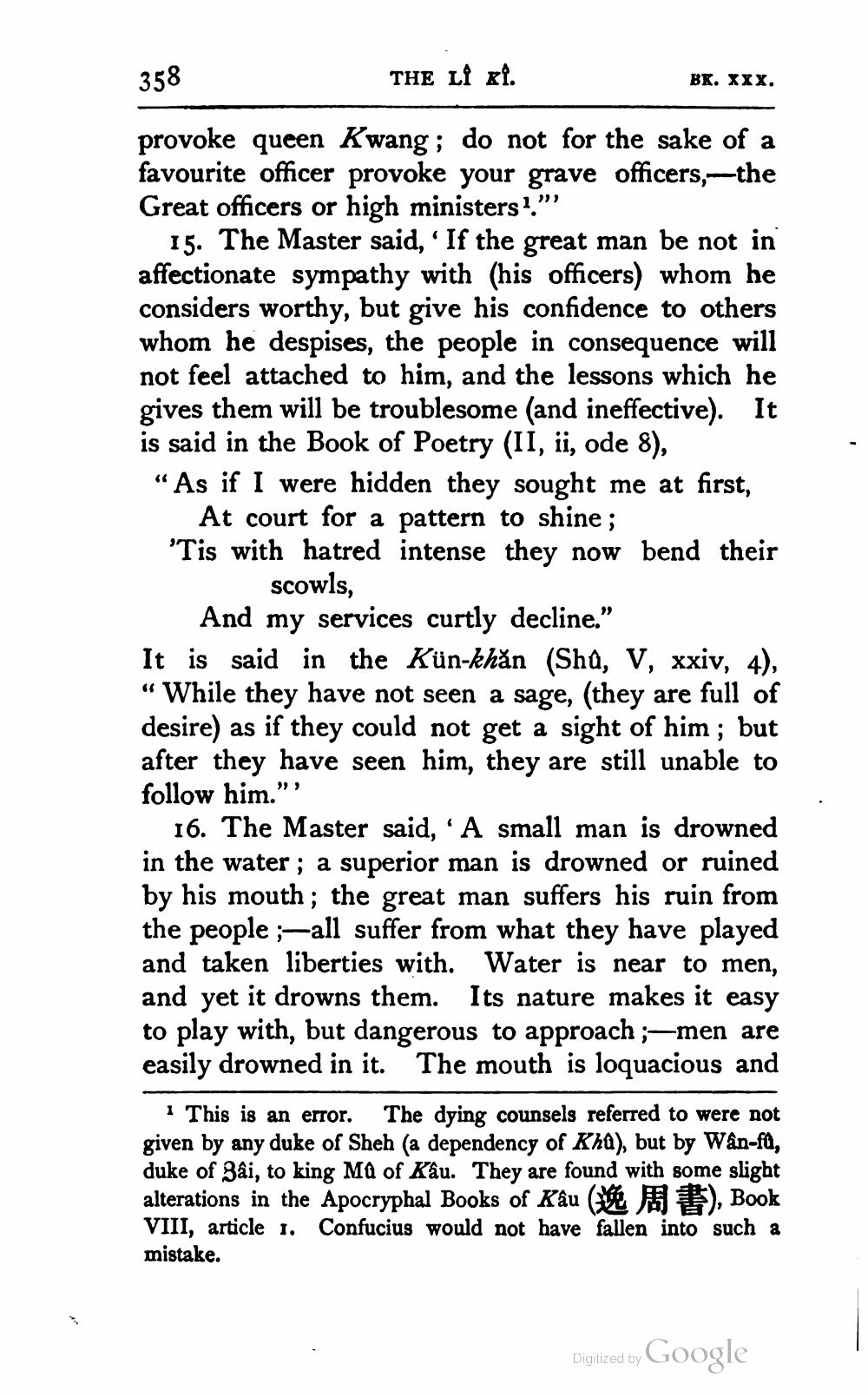________________
358
THE LÎ ki.
BK. XXX
provoke queen Kwang; do not for the sake of a favourite officer provoke your grave officers,—the Great officers or high ministers?."
15. The Master said, 'If the great man be not in affectionate sympathy with (his officers) whom he considers worthy, but give his confidence to others whom he despises, the people in consequence will not feel attached to him, and the lessons which he gives them will be troublesome (and ineffective). It is said in the Book of Poetry (II, ii, ode 8), “As if I were hidden they sought me at first,
At court for a pattern to shine; 'Tis with hatred intense they now bend their
scowls, And my services curtly decline." It is said in the Kün-khăn (ShŲ, V, xxiv, 4), “While they have not seen a sage, (they are full of desire) as if they could not get a sight of him ; but after they have seen him, they are still unable to follow him.”'
16. The Master said, 'A small man is drowned in the water ; a superior man is drowned or ruined by his mouth; the great man suffers his ruin from the people ;-all suffer from what they have played and taken liberties with. Water is near to men, and yet it drowns them. Its nature makes it easy to play with, but dangerous to approach ;-men are easily drowned in it. The mouth is loquacious and
* This is an error. The dying counsels referred to were not given by any duke of Sheh (a dependency of Kha), but by Wân-fa, duke of Zai, to king Ma of Kâu. They are found with some slight alterations in the Apocryphal Books of Kâu (te ), Book VIII, article 1. Confucius would not have fallen into such a mistake.
Digitized by Google




